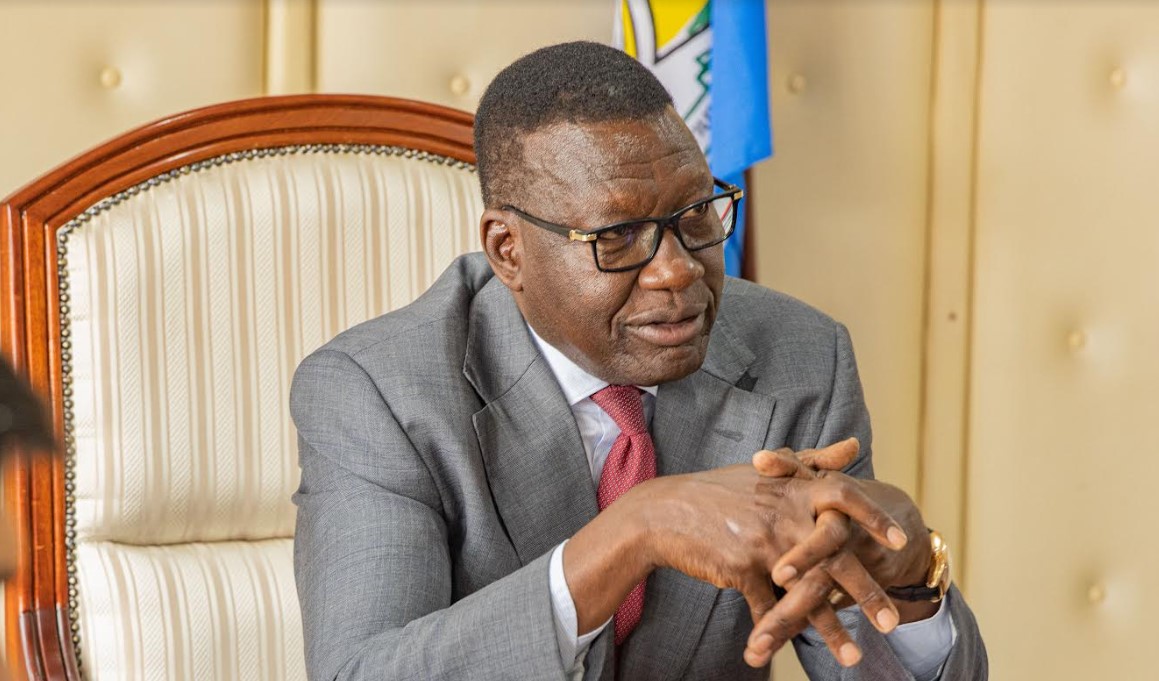Kenya to regulate AI with new strategy amid growing concerns

The government is keen to harness the technology's potential while ensuring its ethical and responsible use.
Kenya is set to introduce regulations to govern the use of artificial intelligence (AI) in the country, as its adoption continues to grow across various sectors.
The government is keen to harness the technology's potential while ensuring its ethical and responsible use.
More To Read
- ChatGPT 'therapy sessions' are not private, warns OpenAI CEO Sam Altman
- OpenAI set to launch GPT-5 in August, promises major leap in AI performance
- Kenya among African nations to benefit from Google’s Sh904 million AI funding
- AI chatbots can boost public health in Africa - why language inclusion matters
- ChatGPT now handles over 2.5 billion prompts a day, OpenAI confirms
- AI revolution in Kenya: IT guru James Rege urges youth to tap digital jobs, global opportunities
This effort is outlined in the newly published draft of Kenya National Artificial Intelligence Strategy 2025–2030, released by the Ministry of ICT and Digital Economy.
The strategy aims to implement a governance framework that supports the use of AI in key sectors such as agriculture, healthcare, security, education, and public service delivery.
However, the government is also focused on addressing concerns related to the potential misuse of the technology.
As AI becomes more integrated into daily life, the Ministry warns that without clear regulations, the rapid growth of AI could lead to harmful consequences, including misuse for malicious purposes.
AI refers to the ability of machines and computers to mimic human-like learning, decision-making, problem-solving, and creativity.
Negative impact
While the technology holds transformative potential, there are concerns that its unregulated use could lead to negative impacts on privacy, security, and individual rights.
The draft strategy emphasizes the need for a balanced approach.
"A balanced approach is needed to unlock AI's transformative potential in addressing our most pressing national challenges while safeguarding every Kenyan citizen's interests and rights," the document states.
It adds that AI's potential should be maximized, but protective measures must be in place to prevent exploitative uses of the technology.
In addition to its AI strategy, the government has also formed a 21-member committee tasked with drafting a national cybersecurity policy and an AI and cybersecurity plan.
This comes at a time when the country lacks a legal framework for AI deployment, raising concerns about the technology's security and possible misuse.
The Ministry of ICT believes that clear guidelines will help regulate AI in a way that prevents misuse while fostering innovation in key sectors.
The government's move follows growing global discussions on the ethics and security of AI as the technology continues to advance.
While AI promises to improve efficiency and productivity in sectors like healthcare and agriculture, there is also the risk that it could be used to spread misinformation, invade privacy, or even infringe on people's rights.
Top Stories Today
- KAM decries weak policy enforcement in Kenya’s wastewater management
- KHRC: Mwabili Mwagodi was under surveillance prior to abduction in Tanzania
- Kenya’s quiet envoy shuffle: After DRC snub, Ruto’s appointee lands in Accra
- Government to build seven police stations in Tiaty, Baringo in bid to curb banditry
- How to bake a moist chocolate cake to warm you up in July
- KISIP II: Thousands in Nairobi to benefit from major upgrade of informal settlements

















































